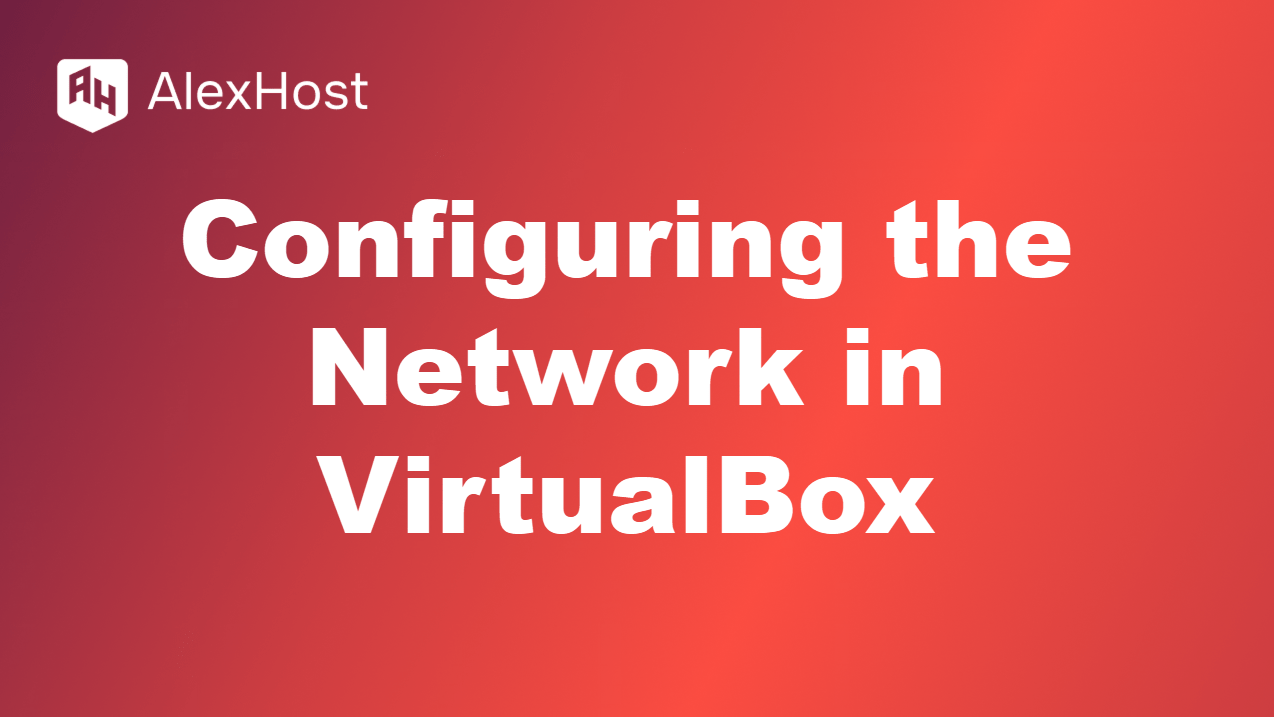Automation and efficiency are key to modern workflows, and AlexHost’s VPS Hosting provides the perfect platform to execute and manage your scripts seamlessly. With full root access, robust performance, and support for popular scripting languages like Python, Bash, and PHP, AlexHost empowers developers and administrators to streamline tasks, enhance web applications, and automate processes effortlessly. […]
Configuring the network settings in VirtualBox is crucial for enabling communication between your virtual machines (VMs), the host machine, and the external network. VirtualBox offers various networking modes to suit different use cases. This guide will cover how to set up and configure the network in VirtualBox. 1. Understanding Network Modes in VirtualBox VirtualBox provides […]
Moving files to a virtual machine (VM) in VirtualBox can enhance productivity by allowing you to share data between your host machine and the guest operating system. This guide will walk you through several methods to transfer files into a VirtualBox VM. 1. Using Shared Folders One of the most effective ways to share files […]
A 404 error occurs when a web page cannot be found on the server. This can happen due to a broken link, deleted content, or a mistyped URL. Redirecting users from a 404 error page to a more relevant page improves user experience and can help retain traffic on your site. This guide will outline […]
Creating Cloud Storage: A Complete Guide with AlexHost Creating cloud storage allows you to store, access, and manage files remotely via the internet. Whether for personal use or business, it provides flexibility, accessibility, scalability, and enhanced security. This guide walks you through everything from understanding your storage needs to setting up your own cloud server […]
Nginx is a high-performance web server and reverse proxy server that is widely used for serving static content, handling concurrent connections, and load balancing. This guide will walk you through the installation and configuration of Nginx on a CentOS 7 server. 1. Update Your System Before installing Nginx, ensure your system is up to date. […]
Losing access to your personal account can be frustrating, especially if it contains important information. Fortunately, most online services provide a way to restore access using your registered email. This guide will walk you through the steps to regain access to your account using your contact email. 1. Go to the Login Page Start by […]
In modern Linux distributions that use systemd as the init system, managing services and processes is accomplished through the systemctl command. This powerful command allows users to control system services, check their statuses, and manipulate their configurations. In this article, we will explore how to use systemctl commands to restart, reload, and stop services in […]
Streamlining your Linux workflows is effortless when paired with a reliable hosting platform. AlexHost’s VPS Hosting offers a robust environment for developers to harness the power of tools like fzf. With full root access, high performance, and the ability to customize your server, AlexHost ensures a seamless and productive experience for managing and enhancing your […]
HTTP (Hypertext Transfer Protocol) is the backbone of web communication. Every time a user accesses a website, an HTTP request is made to the server. For Linux users, understanding how to make and analyze HTTP requests is crucial for web development, system administration, and troubleshooting network issues. This article delves into the structure of HTTP […]

















